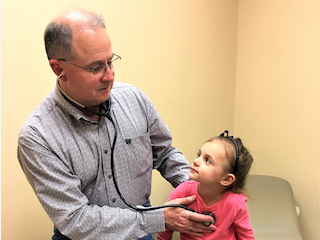 I’ve been writing fewer posts recently because the trajectory forward for healthcare and healthcare IT seems to be evolving very rapidly. In just the past week, we’ve had: the American Hospital Association letter suggesting that 21,000 pages of regulations be rolled back including Meaningful Use Stage Three concepts and quality measurement in many care settings, the passage of the 21st Century Cures bill and its many IT related mandates, and the nomination of Tom Price for HHS Secretary and Seema Verma for CMS administrator...
I’ve been writing fewer posts recently because the trajectory forward for healthcare and healthcare IT seems to be evolving very rapidly. In just the past week, we’ve had: the American Hospital Association letter suggesting that 21,000 pages of regulations be rolled back including Meaningful Use Stage Three concepts and quality measurement in many care settings, the passage of the 21st Century Cures bill and its many IT related mandates, and the nomination of Tom Price for HHS Secretary and Seema Verma for CMS administrator...
 The Department of Health and Human Services (HHS) announced the availability of $195 million in a new funding opportunity for community health centers to expand access to mental health and substance abuse services focusing on the treatment, prevention and awareness of opioid abuse in all U.S. states, territories and the District of Columbia. The awards are expected to be made in September of this year. Health centers that receive an award will use the funds to increase the number of personnel dedicated to mental health and substance abuse services and to leverage health information technology and training to support the expansion of mental health and substance abuse services and their integration into primary care.
The Department of Health and Human Services (HHS) announced the availability of $195 million in a new funding opportunity for community health centers to expand access to mental health and substance abuse services focusing on the treatment, prevention and awareness of opioid abuse in all U.S. states, territories and the District of Columbia. The awards are expected to be made in September of this year. Health centers that receive an award will use the funds to increase the number of personnel dedicated to mental health and substance abuse services and to leverage health information technology and training to support the expansion of mental health and substance abuse services and their integration into primary care.
 Dr. Bryan Hill spent his career working as a pediatrician, teaching at a university, and working at a hospital. But in March 2016, he decided he no longer wanted a boss. He took some time off, then one day he got a call asking if he'd be up for doing a house call for a woman whose son was sick. He agreed, and by the end of that visit, he realized he wanted to treat patients without dealing with any of the insurance requirements. Then he learned about a totally different way to run a doctor's office...
Dr. Bryan Hill spent his career working as a pediatrician, teaching at a university, and working at a hospital. But in March 2016, he decided he no longer wanted a boss. He took some time off, then one day he got a call asking if he'd be up for doing a house call for a woman whose son was sick. He agreed, and by the end of that visit, he realized he wanted to treat patients without dealing with any of the insurance requirements. Then he learned about a totally different way to run a doctor's office... The American Medical Association strongly supports the nomination of Dr. Tom Price to become the next Secretary of Health and Human Services (HHS). His service as a physician, state legislator and member of the U.S. Congress provides a depth of experience to lead HHS. Dr. Price has been a leader in the development of health policies to advance patient choice and market-based solutions as well as reduce excessive regulatory burdens that diminish time devoted to patient care and increase costs...
The American Medical Association strongly supports the nomination of Dr. Tom Price to become the next Secretary of Health and Human Services (HHS). His service as a physician, state legislator and member of the U.S. Congress provides a depth of experience to lead HHS. Dr. Price has been a leader in the development of health policies to advance patient choice and market-based solutions as well as reduce excessive regulatory burdens that diminish time devoted to patient care and increase costs... Undaunted by the devastation caused by Hurricane Harvey in Houston, the Stephen F. Austin Community Health Network (SFA) responded to the crisis by leveraging open source technology to reach out to their patients and victims of the hurricane in areas of Texas that are virtually inaccessible. The Health Network, a Federally Qualified Health Center (FQHC) covering Brazoria County, is one of the areas hardest hit by Hurricane Harvey and currently recovering. Using an advanced cloud-based version of the OpenEMR software, the SFA Community Health Network has been able to treat patients in clinics physically unreachable by their medical providers.
Undaunted by the devastation caused by Hurricane Harvey in Houston, the Stephen F. Austin Community Health Network (SFA) responded to the crisis by leveraging open source technology to reach out to their patients and victims of the hurricane in areas of Texas that are virtually inaccessible. The Health Network, a Federally Qualified Health Center (FQHC) covering Brazoria County, is one of the areas hardest hit by Hurricane Harvey and currently recovering. Using an advanced cloud-based version of the OpenEMR software, the SFA Community Health Network has been able to treat patients in clinics physically unreachable by their medical providers. Health and Human Services Secretary Tom Price advocated Thursday for reducing the burden placed upon physicians and health care providers by the health technology that is otherwise meant to improve care for patients. Speaking at his first Health Datapalooza as the head of HHS, Price said the proliferation of health IT is something that “can have remarkably challenging and sometimes destructive consequences”...
Health and Human Services Secretary Tom Price advocated Thursday for reducing the burden placed upon physicians and health care providers by the health technology that is otherwise meant to improve care for patients. Speaking at his first Health Datapalooza as the head of HHS, Price said the proliferation of health IT is something that “can have remarkably challenging and sometimes destructive consequences”... Hopefully, the public statements made by President Obama and Vice President Biden will lead to a public debate over the monumental problems that the HITECH Act and proprietary EHR vendors have caused the American people. While the press continues to report the figure of $35 billion as the cost of implementing EHRs, that figure does not tell the entire story. Perhaps the next step is to provide accountability and transparency. That would start with firm numbers regarding the real costs of EHR implementations forced on an unprepared healthcare system by the HITECH Act.
Hopefully, the public statements made by President Obama and Vice President Biden will lead to a public debate over the monumental problems that the HITECH Act and proprietary EHR vendors have caused the American people. While the press continues to report the figure of $35 billion as the cost of implementing EHRs, that figure does not tell the entire story. Perhaps the next step is to provide accountability and transparency. That would start with firm numbers regarding the real costs of EHR implementations forced on an unprepared healthcare system by the HITECH Act. As they are winding their terms in office, President Barack Obama and Vice President Joe Biden dropped a stink bomb on the health IT industry. Speaking at different events on Friday, January 9th, the President and Vice President both criticized proprietary electronic health record (EHR) vendors as the primary obstacle to the success of their administration’s health care strategy. This is the highest level acknowledgment so far of the serious impact that “lock-in” EHR software vendors are having on America’s medical infrastructure and the ability of physicians to provide medical care.
As they are winding their terms in office, President Barack Obama and Vice President Joe Biden dropped a stink bomb on the health IT industry. Speaking at different events on Friday, January 9th, the President and Vice President both criticized proprietary electronic health record (EHR) vendors as the primary obstacle to the success of their administration’s health care strategy. This is the highest level acknowledgment so far of the serious impact that “lock-in” EHR software vendors are having on America’s medical infrastructure and the ability of physicians to provide medical care.